No Results Found
The page you requested could not be found. Try refining your search, or use the navigation above to locate the post.

We spoke with Summer Secord and her mother, Crystal Mitchell after Jim Horne reached out to them regarding a lack of care that resulted in the death of a foal and the poor condition of horses in the ‘care’ of Stephanie Redlick – along with a lack of water and feed – he had seen. [Read about Jim’s experience here.]
Stephanie Redlick relinquished 4 horses of 17 she owned and was holding on a leased property in Oro-Medonte, Ontario, Canada to Summer Secord and Crystal Mitchell. We are grateful that Summer, Crystal along with Celia Carletti have carefully documented what they witnessed at the property and the condition each of the horses were in when relinquished.
This situation highlights both the cruelty some humans are capable of and the compassion of those who choose to step up, take action and show kindness.
P.S. It’s important to note that 13 horses remain in the ‘care’ of Stephanie Redlick. Please scroll down for how you can help remedy this situation.
The following pictures are of one of four horses relinquished to Summer Secord and Crystal Mitchell by Stephanie Redlick.
Standardbred Pureform Olympia began her racing career in British Columbia and finished in Ontario. Records show she was run through the Olex Horse Sales Auction in April of 2024 after her 2024 foal died.
Sadly she ended up in the hands of Stephanie Redlick who had the following to say about her…

Pureform Olympia- 17 year old standardbred mare. DSLD, Will most likely need to be Euthanized i can’t bring myself to doing it… maybe not but I’m pretty sure we all agreed haven awaits her.
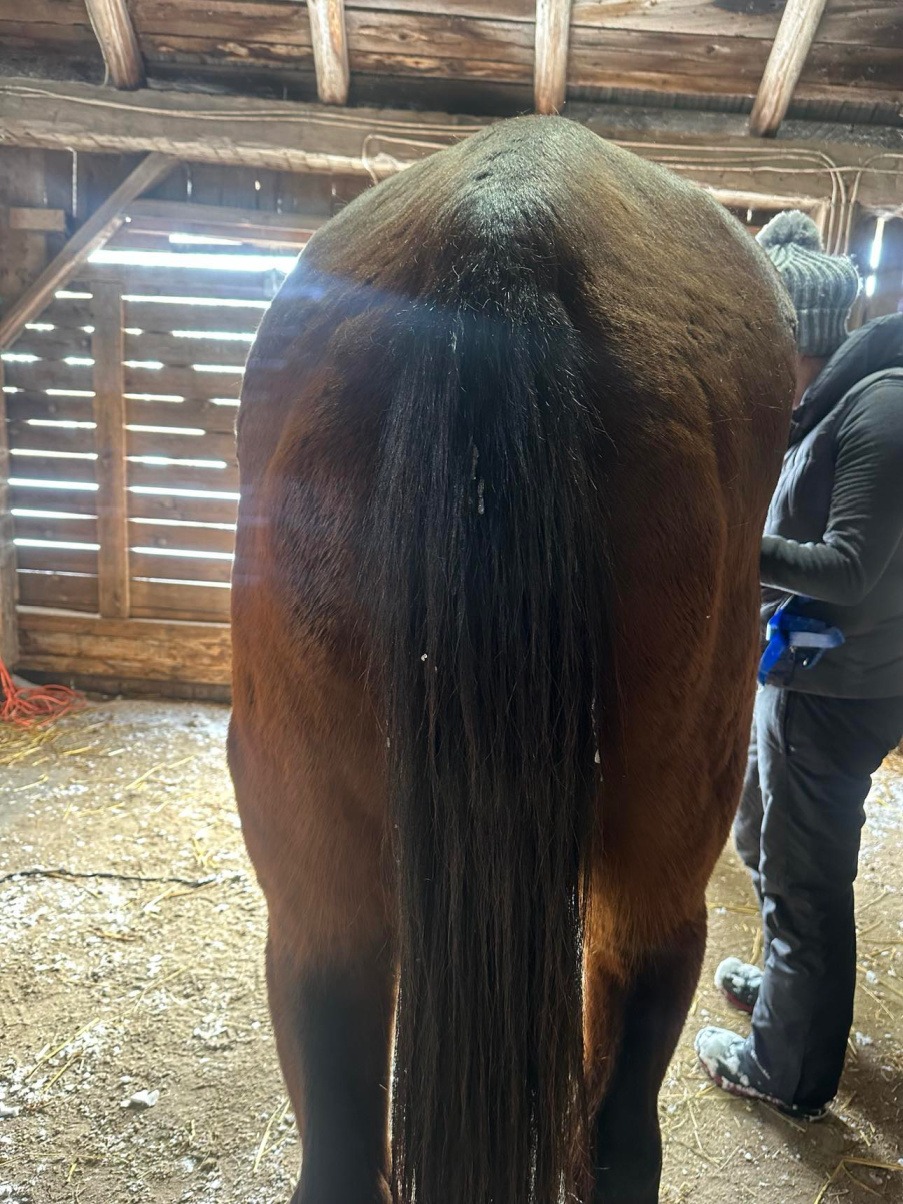
Pureform Olympia (standardbred / tattooed/ mare / 17 years old / issues with back legs/ DSLD/ had shoes on when relinquished but farrier says her feet haven’t been done in 8-9 months – her feet were of course after that long without care horribly overgrown).
NOTE: Most responsible horse owners have their horses trimmed or reshod every 4 to 6 weeks, and maybe in some cases go 8 weeks. Pureform Olympia’s feet were not trimmed or reshod in 8 to 9 months which is especially concerning as by Stephanie’s own admission Pureform Olympia is thought to have DSLD.
Studies show regular…
Therapeutic shoeing can help support the affected limbs of a horse with DSLD. It is “recommended to find a farrier experienced in trimming and shoeing DSLD horses.
Eggbar shoes or shoes with extended heels can provide fetlock support. When DSLD is diagnosed at an advanced stage, high wedge heels can offer relief. If the horse begins to feel better, the height of the wedge is gradually brought back to normal.
The recommendation is to consult with a farrier who has experience with DSLD.
Anecdotal reports suggest keeping your horse barefoot with correct trimming can be more effective for decreasing loading stress on compromised connective tissue.
Again, we ask does this look like a horse who has been well cared for?
Keep in mind there are still 13 horses in the ‘care’ of Stephanie Redlick.
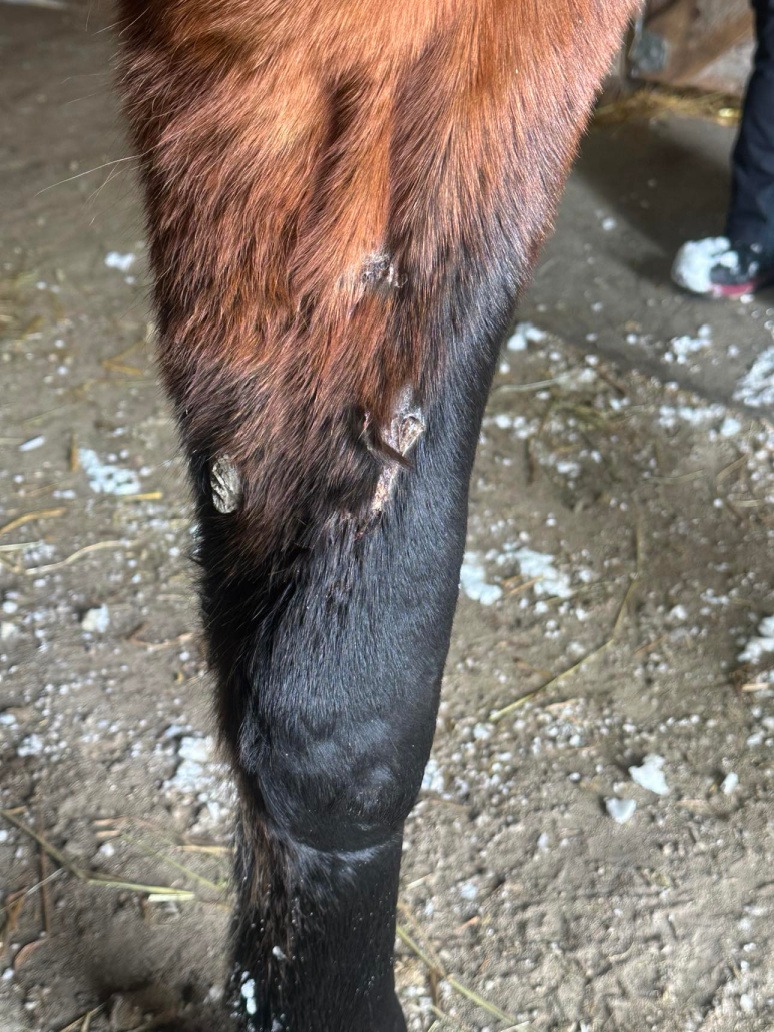
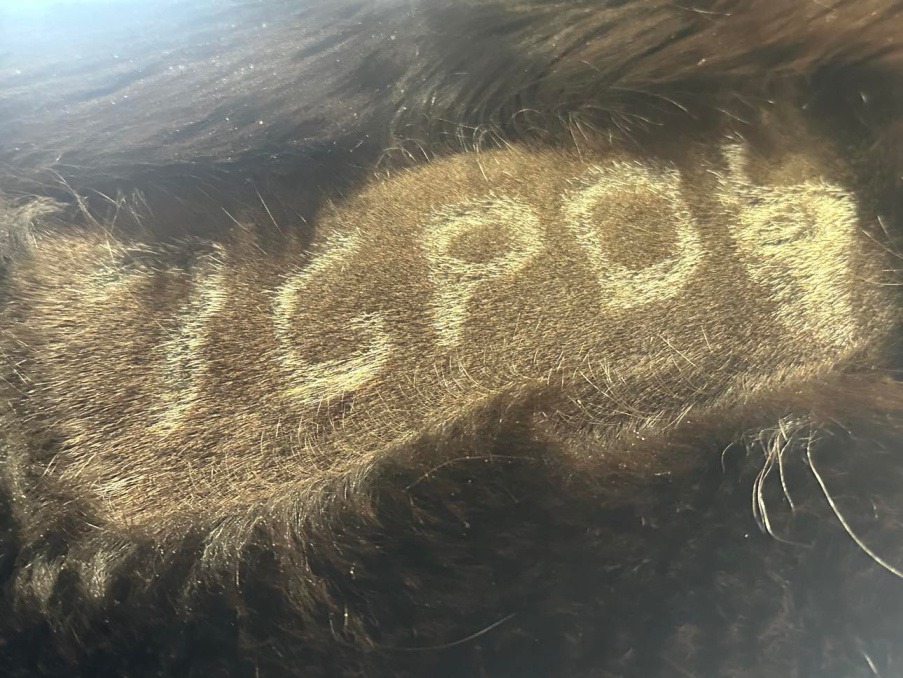

The team at https://horserescuefund.org has begun raising funds to support the Mitchell family in caring for the 4 emaciated horses they convinced Stephanie Redlick to relinquish.
[UPDATE Feb. 17, 2025: Despite a carefully planned and meticulously followed treatment protocol one of the four -- Seattle Sunrise -- was euthanized on the advice of a veterinarian.]
Providing these horses with veterinary care, prescriptions, specialized nutrition and farrier services has already been costly.
Horse Rescue Fund | 2467863 Alberta Society
is a registered foundation at the federal level with the
Canada Revenue Agency and as such, can issue receipts for donations.
You can confirm HRF's official status here.
Business/Registration number: 798022307 RR 0001
Contact members of the press, especially those who have a history of writing about animal welfare-related cases. Share this link - https://banhorseslaughter.com/stephanie-redlick -- it's been set up specifically to not only raise funds but also awareness with the public and the press.
Share our posts and website on your social media accounts and forward emails. What's that? You're not on our email list? Scroll down.
Pictures and videos on this page are courtesy of Summer Secord, Crystal Mitchell and Celia Carletti.
Press contact: marie@banhorseslaughter.com or phone: 250 801 8231
The page you requested could not be found. Try refining your search, or use the navigation above to locate the post.
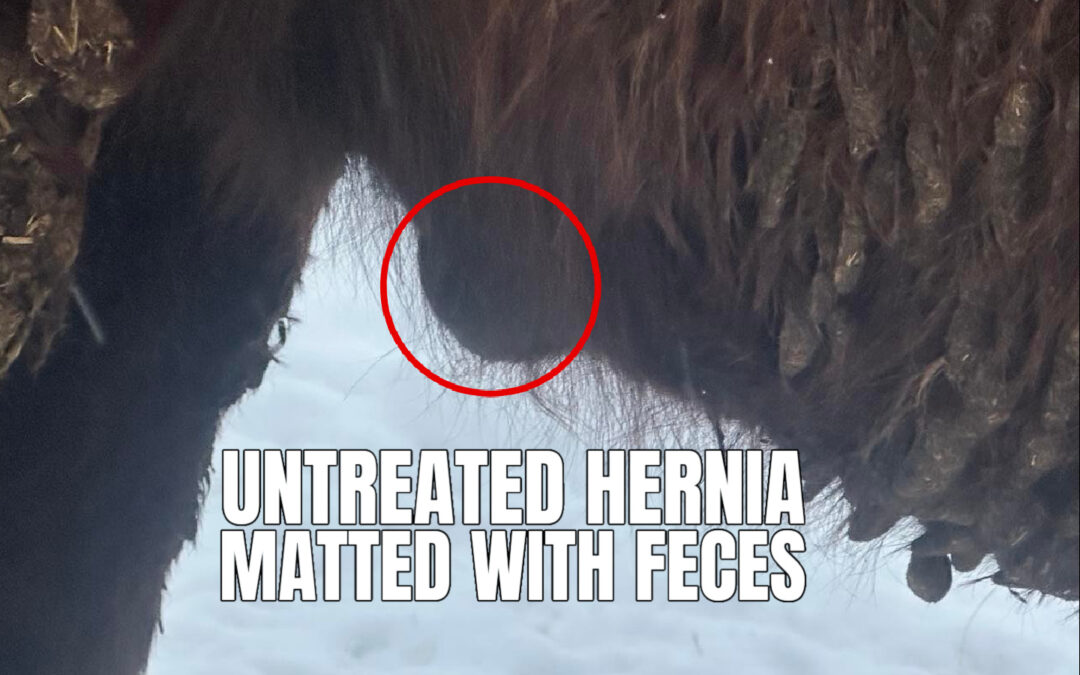
This situation highlights both the cruelty some humans are capable of and the compassion of those who choose to step up, take action and show kindness.
We spoke with Summer Secord and her mother, Crystal Mitchell after Jim Horne reached out to them regarding a lack of care that resulted in the death of a foal and the poor condition of horses in the ‘care’ of Stephanie Redlick – along with a lack of water and feed – he had seen. [Read about Jim’s experience here.]
Stephanie Redlick relinquished 4 horses of 17 she owned and was holding on a leased property in Oro-Medonte, Ontario, Canada to Summer Secord and Crystal Mitchell. We are grateful that Summer, Crystal along with Celia Carletti have carefully documented what they witnessed at the property and the condition each of the horses were in when relinquished.
It’s important to note that 13 horses remain in the ‘care’ of Stephanie Redlick. Please scroll down for how you can help remedy this situation.

These pictures are of one of four horses relinquished to Summer Secord and Crystal Mitchell by Stephanie Redlick. Those are feces caked on her sides and belly. Please note the overgrown hooves and hernia.
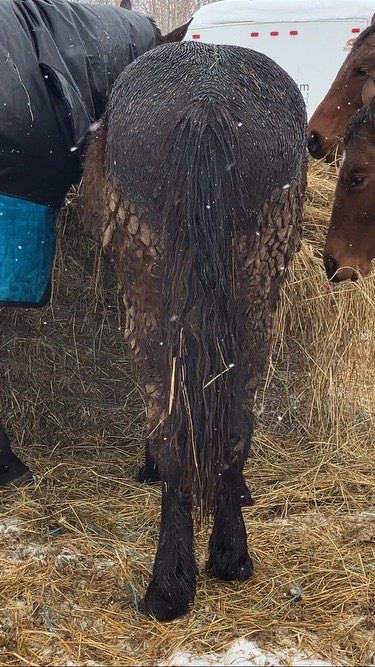
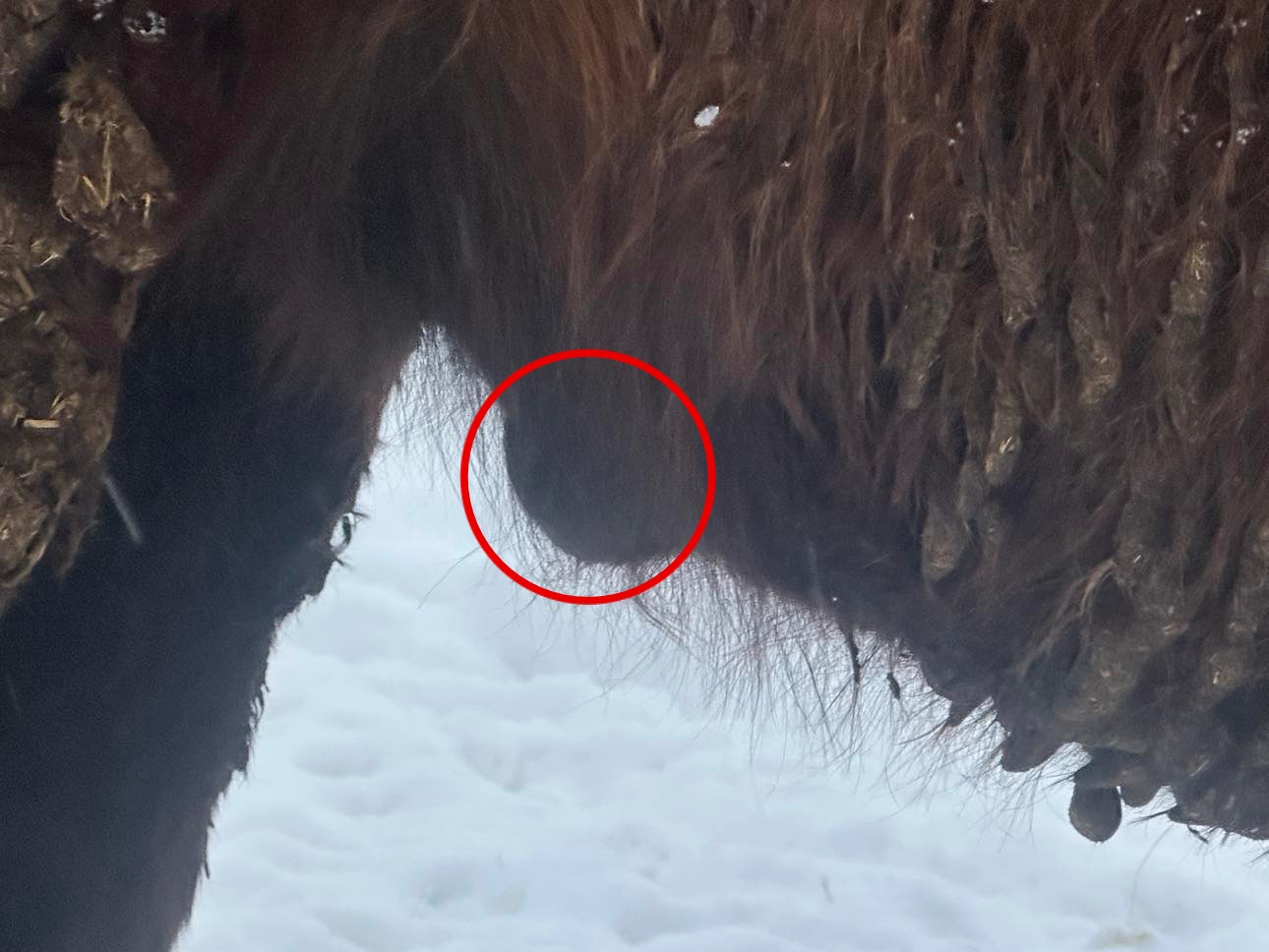
Xena (mare / draft cross / said to be Friesian x Percheron / has hernia / covered in cow feces / unhandled, scared, overgrown neglected feet / she is in pain and kicks when you try and touch her where the cow feces are packed onto her). Like the other horses, she is not only underweight but also dehydrated.
Approximately 18 months old.
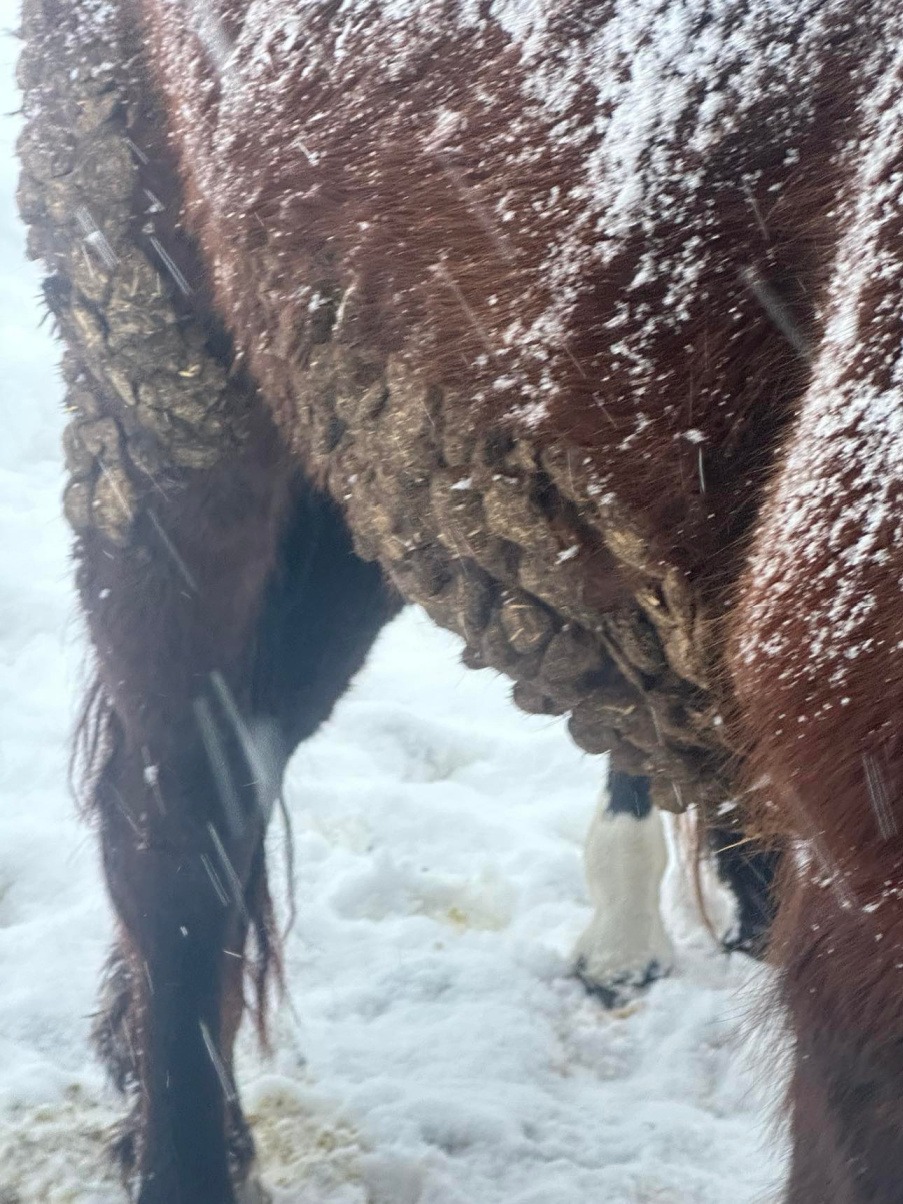
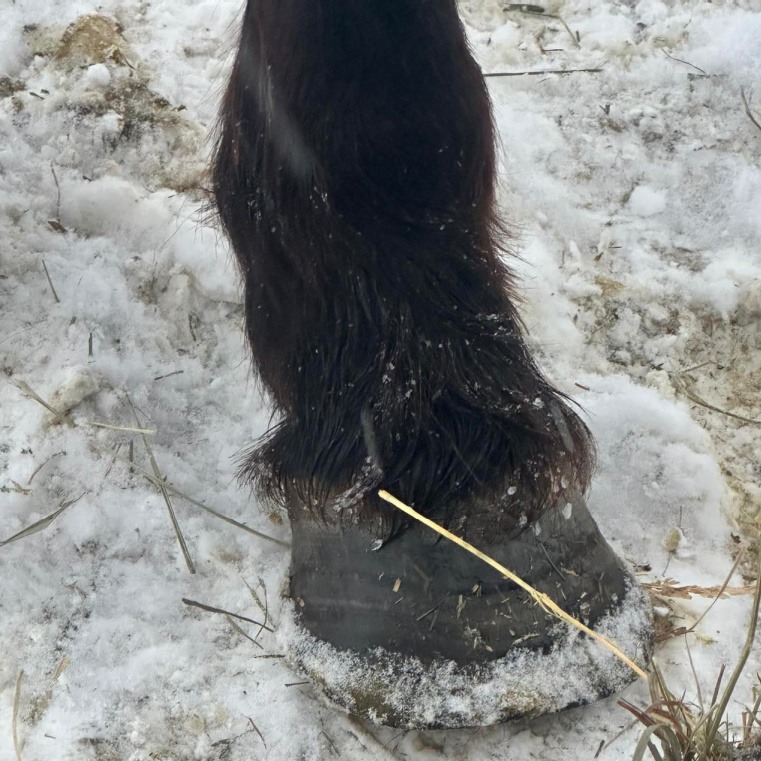
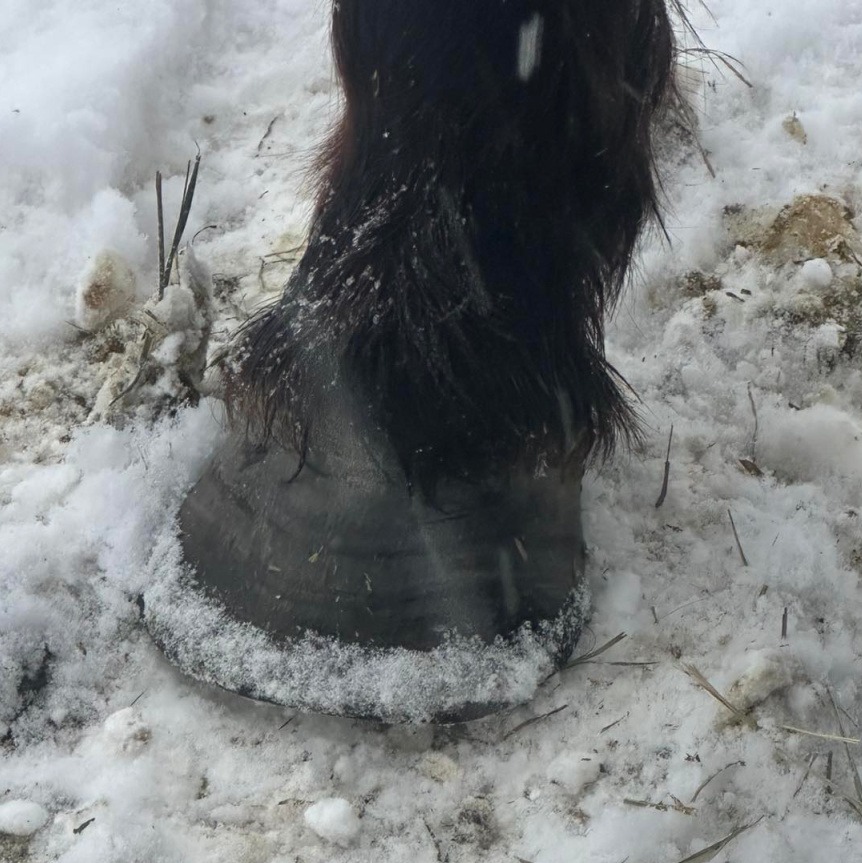

The team at https://horserescuefund.org has begun raising funds to support the Mitchell family in caring for the 4 emaciated horses they convinced Stephanie Redlick to relinquish.
[UPDATE Feb. 17, 2025: Despite a carefully planned and meticulously followed treatment protocol one of the four -- Seattle Sunrise -- was euthanized on the advice of a veterinarian.]
Providing these horses with veterinary care, prescriptions, specialized nutrition and farrier services has already been costly.
Horse Rescue Fund | 2467863 Alberta Society
is a registered foundation at the federal level with the
Canada Revenue Agency and as such, can issue receipts for donations.
You can confirm HRF's official status here.
Business/Registration number: 798022307 RR 0001
Contact members of the press, especially those who have a history of writing about animal welfare-related cases. Share this link - https://banhorseslaughter.com/stephanie-redlick -- it's been set up specifically to not only raise funds but also awareness with the public and the press.
Share our posts and website on your social media accounts and forward emails. What's that? You're not on our email list? Scroll down.
Pictures and videos on this page are courtesy of Summer Secord, Crystal Mitchell and Celia Carletti.
Press contact: marie@banhorseslaughter.com or phone: 250 801 8231
The page you requested could not be found. Try refining your search, or use the navigation above to locate the post.
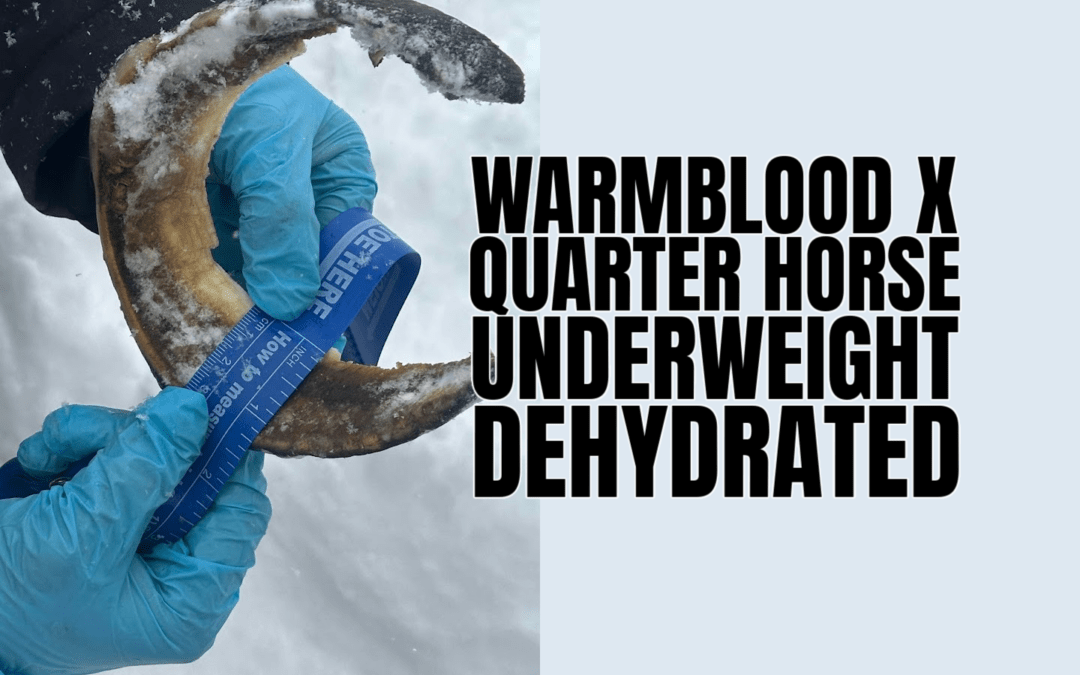
We spoke with Summer Secord and her mother, Crystal Mitchell after Jim Horne reached out to them regarding a lack of care that resulted in the death of a foal and the poor condition of horses in the ‘care’ of Stephanie Redlick – along with a lack of water and feed – he had seen. [Read about Jim’s experience here.]
Stephanie Redlick relinquished 4 horses of 17 she owned and was holding on a leased property in Oro-Medonte, Ontario, Canada to Summer Secord and Crystal Mitchell. We are grateful that Summer, Crystal along with Celia Carletti have carefully documented what they witnessed at the property and the condition each of the horses were in when relinquished.
This situation highlights both the cruelty some humans are capable of and the compassion of those who choose to step up, take action and show kindness.
P.S. It’s important to note that 13 horses remain in the ‘care’ of Stephanie Redlick. Please scroll down for how you can help remedy this situation.
The following pictures are of one of four horses relinquished to Summer Secord and Crystal Mitchell by Stephanie Redlick.
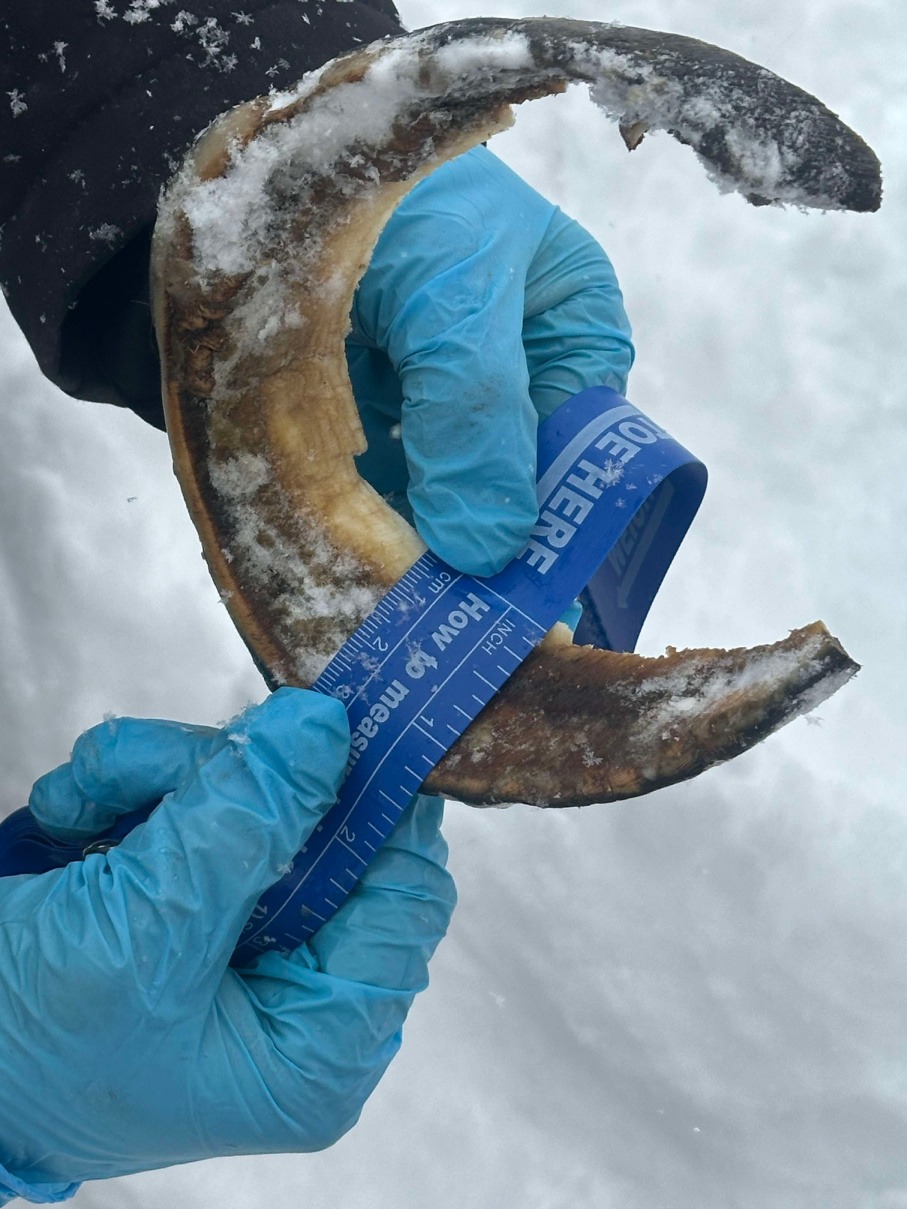
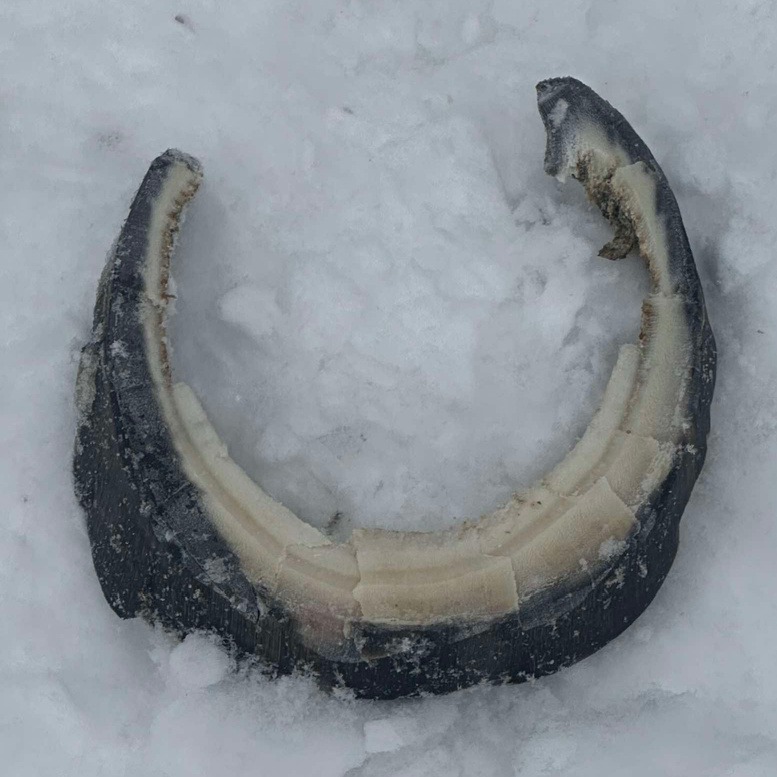
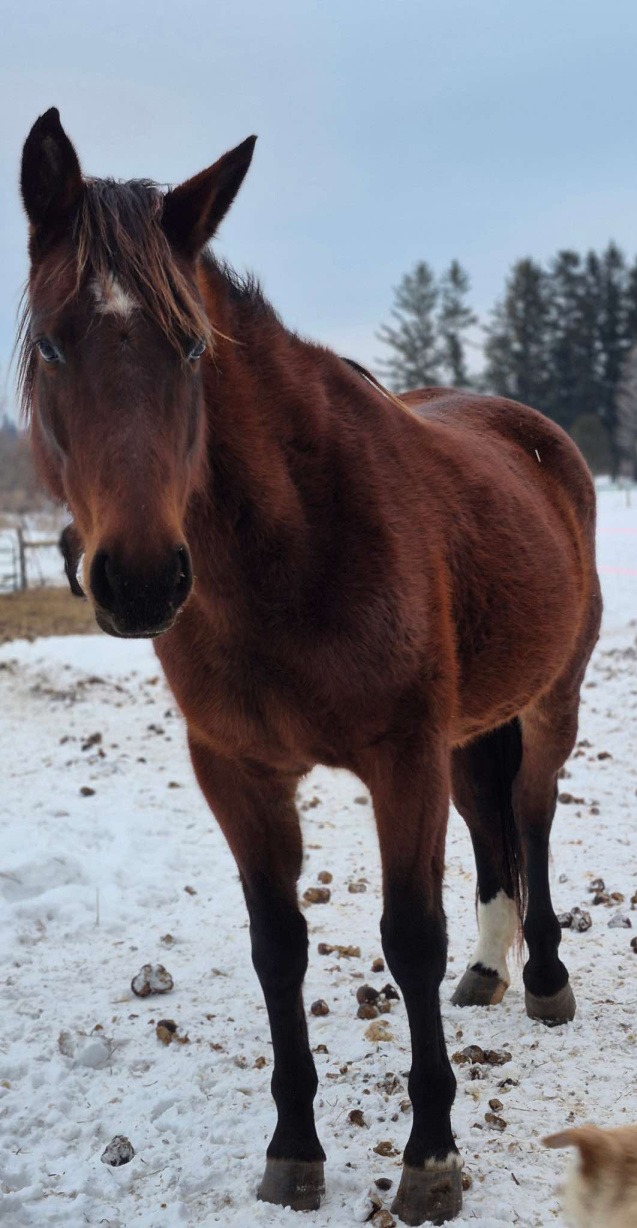

The team at https://horserescuefund.org has begun raising funds to support the Mitchell family in caring for the 4 emaciated horses they convinced Stephanie Redlick to relinquish.
[UPDATE Feb. 17, 2025: Despite a carefully planned and meticulously followed treatment protocol one of the four -- Seattle Sunrise -- was euthanized on the advice of a veterinarian.]
Providing these horses with veterinary care, prescriptions, specialized nutrition and farrier services has already been costly.
Horse Rescue Fund | 2467863 Alberta Society
is a registered foundation at the federal level with the
Canada Revenue Agency and as such, can issue receipts for donations.
You can confirm HRF's official status here.
Business/Registration number: 798022307 RR 0001
Contact members of the press, especially those who have a history of writing about animal welfare-related cases. Share this link - https://banhorseslaughter.com/stephanie-redlick -- it's been set up specifically to not only raise funds but also awareness with the public and the press.
Share our posts and website on your social media accounts and forward emails. What's that? You're not on our email list? Scroll down.
Pictures and videos on this page are courtesy of Summer Secord, Crystal Mitchell and Celia Carletti.
Press contact: marie@banhorseslaughter.com or phone: 250 801 8231
The page you requested could not be found. Try refining your search, or use the navigation above to locate the post.

Do the horses in the following video (and pictures) look like healthy horses who are receiving quality care?
Even the blankets on the horses can’t hide how thin they are or the sores.
Thank you to Summer Secord, Crystal Mitchell and Celia Carletti for taking this undercover footage.

We spoke with Summer Secord and her mother, Crystal Mitchell after Jim Horne reached out to them regarding a lack of care that resulted in the death of a foal and the poor condition of horses in the ‘care’ of Stephanie Redlick – along with a lack of water and feed – he had seen. [Read about Jim’s experience here.]
Stephanie Redlick relinquished 4 horses of 17 she owned and was holding on a leased property in Oro-Medonte, Ontario, Canada to Summer Secord and Crystal Mitchell. We are grateful that Summer, Crystal along with Celia Carletti have carefully documented what they witnessed at the property and the condition each of the horses were in when relinquished.
It’s important to note that 13 horses remain in the ‘care’ of Stephanie Redlick. Please scroll down for how you can help remedy this situation.
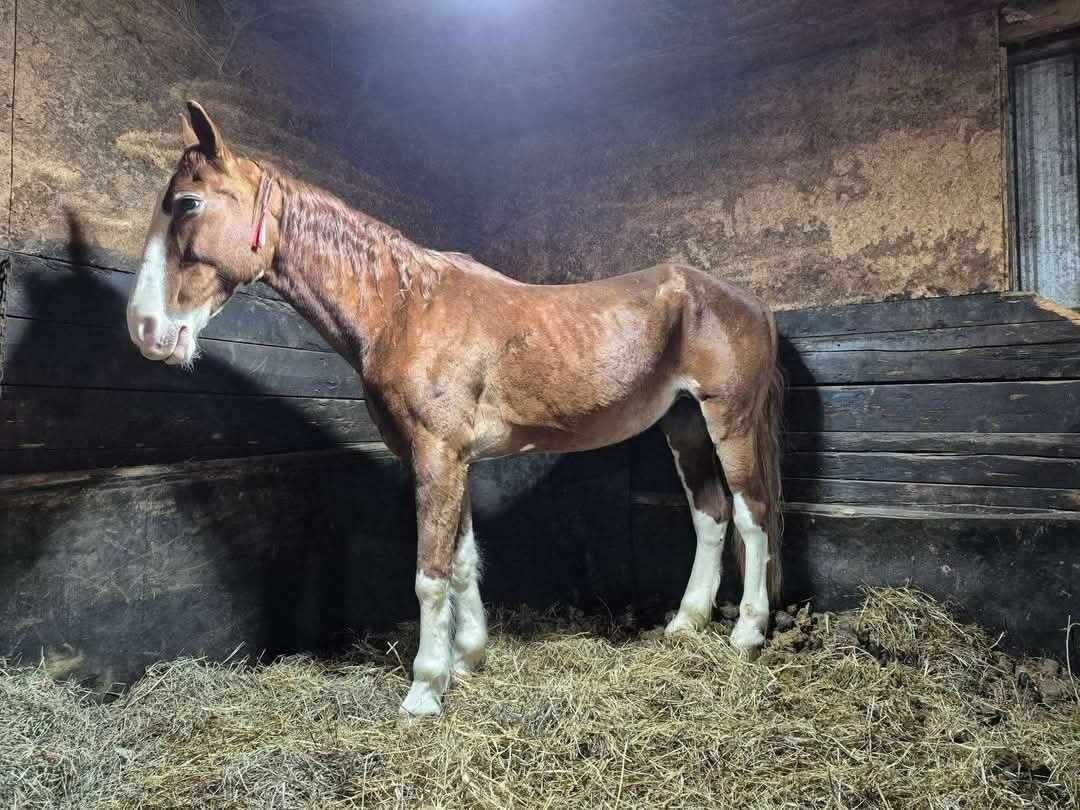
Again, we say, you be the judge. Does this look like a healthy horse who is receiving quality care? Please note the water buckets are blocks of ice, the “bedding” is a foot or more of manure, this poor mare is skin and bones and has sores. AND yes, she along with 12 others remains in the “care” of Stephanie Redlick who was not willing to relinquish her. (Stephanie reportedly stated she was going to get $13,000 for her.)
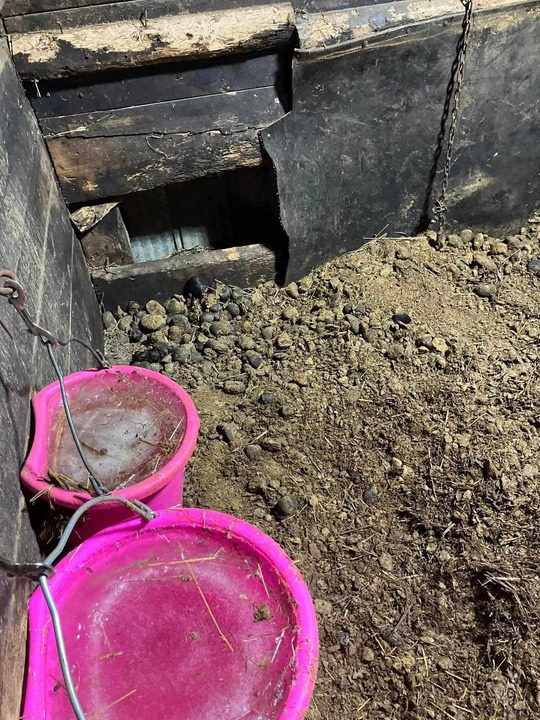

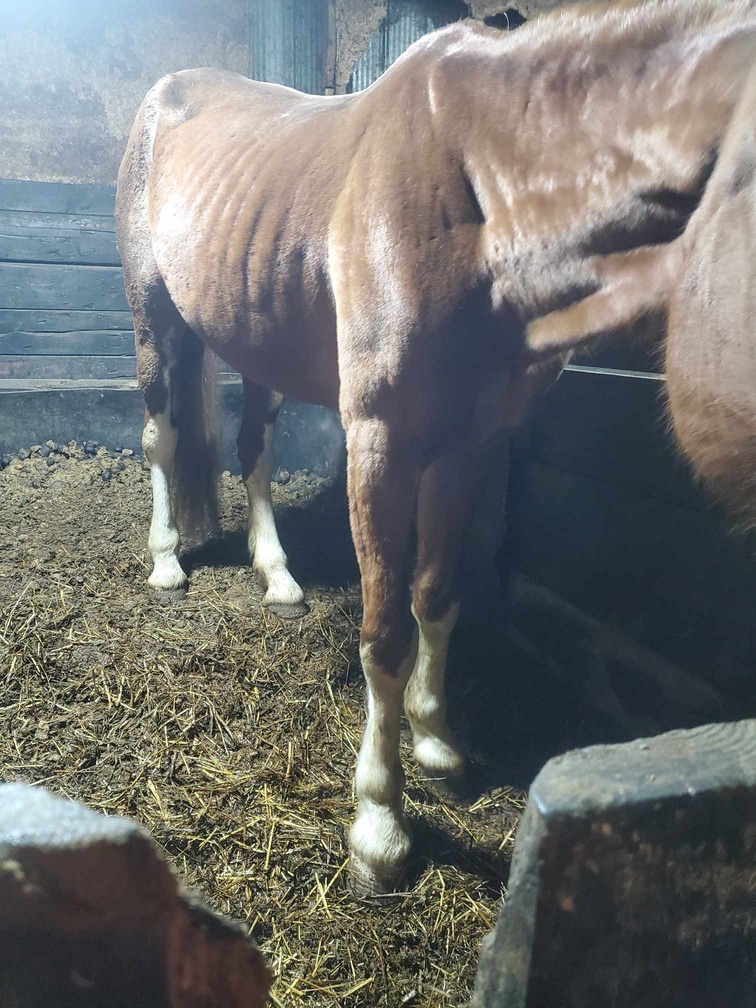

The team at https://horserescuefund.org has begun raising funds to support the Mitchell family in caring for the 4 emaciated horses they convinced Stephanie Redlick to relinquish.
[UPDATE Feb. 17, 2025: Despite a carefully planned and meticulously followed treatment protocol one of the four -- Seattle Sunrise -- was euthanized on the advice of a veterinarian.]
Providing these horses with veterinary care, prescriptions, specialized nutrition and farrier services has already been costly.
Horse Rescue Fund | 2467863 Alberta Society
is a registered foundation at the federal level with the
Canada Revenue Agency and as such, can issue receipts for donations.
You can confirm HRF's official status here.
Business/Registration number: 798022307 RR 0001
Contact members of the press, especially those who have a history of writing about animal welfare-related cases. Share this link - https://banhorseslaughter.com/stephanie-redlick -- it's been set up specifically to not only raise funds but also awareness with the public and the press.
Share our posts and website on your social media accounts and forward emails. What's that? You're not on our email list? Scroll down.
Pictures and videos on this page are courtesy of Summer Secord, Crystal Mitchell and Celia Carletti.
Press contact: marie@banhorseslaughter.com or phone: 250 801 8231
The page you requested could not be found. Try refining your search, or use the navigation above to locate the post.
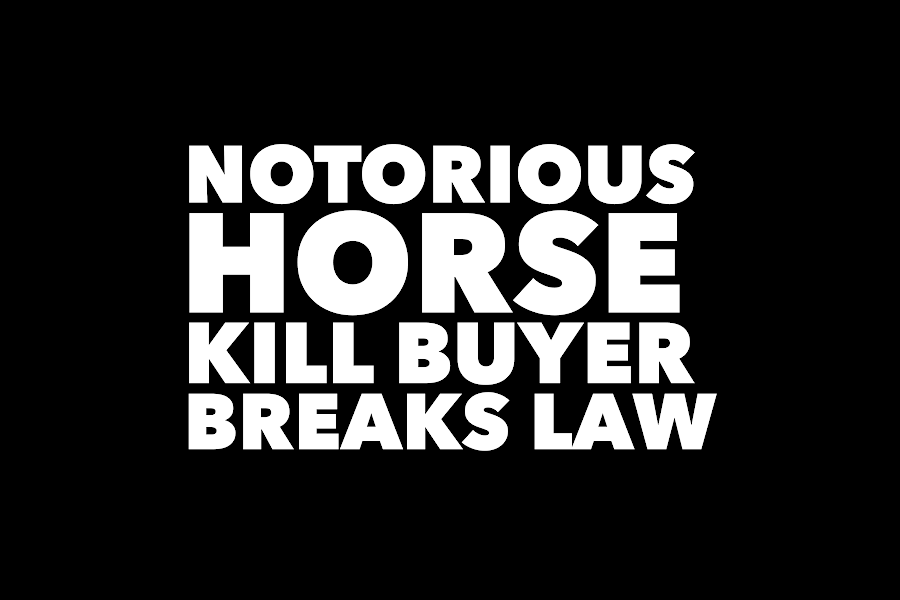
On December 13, 2023, New York Governor Kathy Hochul signed bills A5109/S2163B into law, banning the slaughter of horses throughout the state of New York and making it illegal for any entity to transport horses in or through the state of New York if the horses are intended to be slaughtered for human or animal consumption.
The law went into effect in April of 2024 and we have to say that we wondered how officials were going to monitor the purpose of horses being exported through New York borders with Canada.
Well it appears that Government officials have not picked up on the continuation of horse exports for slaughter via the state of New York but thankfully Animals’ Angels USA has.
Animals’ Angels USA has DOCUMENTED proof that between April and September 2024, Pennsylvania kill buyer Bruce Rotz shipped over 200 horses to slaughter in Canada, using the Champlain border crossing in New York.
Animals’ Angels USA have provided this evidence to the NY Attorney General and the NY Commissioner of AG, asking them to launch an official investigation into the matter.
Rotz’s business could face a penalty of $2,500 for each horse he transported to slaughter, which means he could be facing fines totaling $500,000 or more for these violations.
As one of the largest shippers on the East Coast, Rotz routinely acquires horses at auctions in Pennsylvania, New York, and Tennessee before callously shipping the animals to their deaths at the Viande Richelieu horse slaughter plant in Quebec, Canada.
Over the years, Rotz has committed a long list of offenses against innocent horses.
A small selection of his evil deeds include:
Transporting a group of horses to slaughter in conditions that resulted in thirty of the horses being burned alive.
Overloading a trailer of horses purchased at auction, resulting in the death of ten horses after the vehicle crashed.
Shipping blind and injured horses to slaughter.
Locking four distressed, sick, emaciated pigs in a barn for days without any access to food or water, while withholding pain medicine.
Rotz pled guilty to aggravated animal cruelty and incurred a $100 fine and 12-months of probation with the stipulation that he refrain from neglecting or abusing any animal in his care.
You can add your voice to those calling for Rotz to be held to account for his flagrant violations of the new anti-slaughter law by contacting Letitia James, the New York Attorney General, Commissioner Ball (NY Department of Agriculture & Markets and Kathy Hochul, the Governor of the State of New York.
PLEASE take a few minutes right now to call, email, or write those who can hold Bruce Rotz accountable.
Tell government officials how passionately you feel about this law and its enforcement, and make sure to ask them to investigate Bruce Rotz and hold him accountable.
Please also join us in sharing this information and asking others to reach out too.
It is especially important to reach out to residents of New York State AND to ask them to join you in taking action.
Please investigate horse kill buyer Bruce Rotz and hold him accountable for transporting horses through New York State and into Quebec, Canada for the purpose of slaughter.
New York Attorney General Letitia James
1-800-771-7755
Easy to fill out form:
New York Department of Agriculture and Markets
Commissioner Richard Ball
(518) 457-2771
Commissioner@agriculture.ny.gov
New York Governor Kathy Hochul
1-518-474-8390
Easy to fill out form:

P.S. Thank you to Jo-anne, Patti, Michele, Lindsay and others who brought this to our attention!
With your help we've saved 16 horses in the last few months -- horses who would otherwise have been shipped directly to slaughter -- and we currently have room to save 4 more.
Thank you to all who have so generously contributed!
UPDATE JAN. 18, 2025: It’s been a challenging whirlwind but 16 horses have been saved, 2 placed in permanent homes which means we have room to save 4 more!
Of course, the initial expense of buying horses from First Nations (or kill buyers) so they are not shipped to slaughter is not the biggest nut to crack. Hay, feed, vetting, farrier, and other costs are needed in addition to funds to initially purchase horses to prevent them from being shipped to slaughter - or being left to languish in pens awaiting the same fate.
We always hate to ask but if you are able to help we would love to be able to fill each of the foster homes before these groups of horses are shipped.
Again, we can’t save them all but with your help we can save a total of 20!

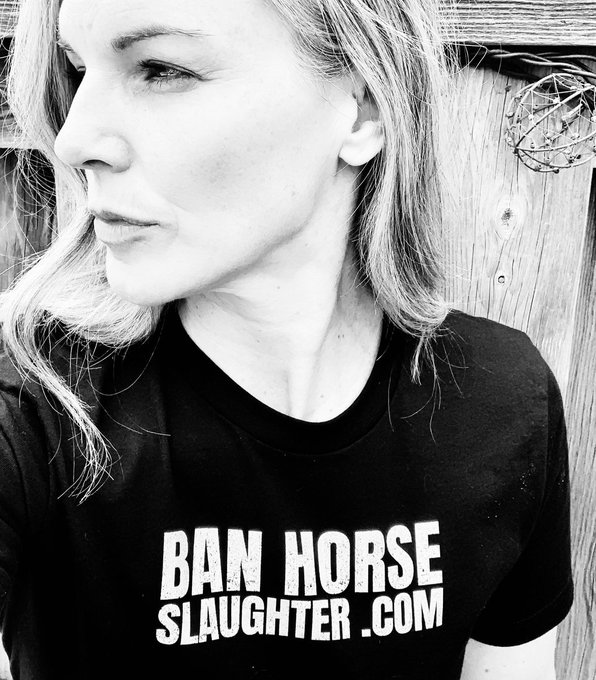
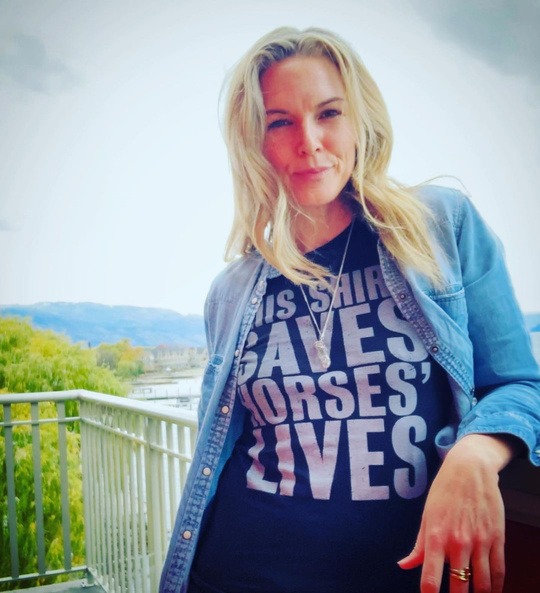
The page you requested could not be found. Try refining your search, or use the navigation above to locate the post.
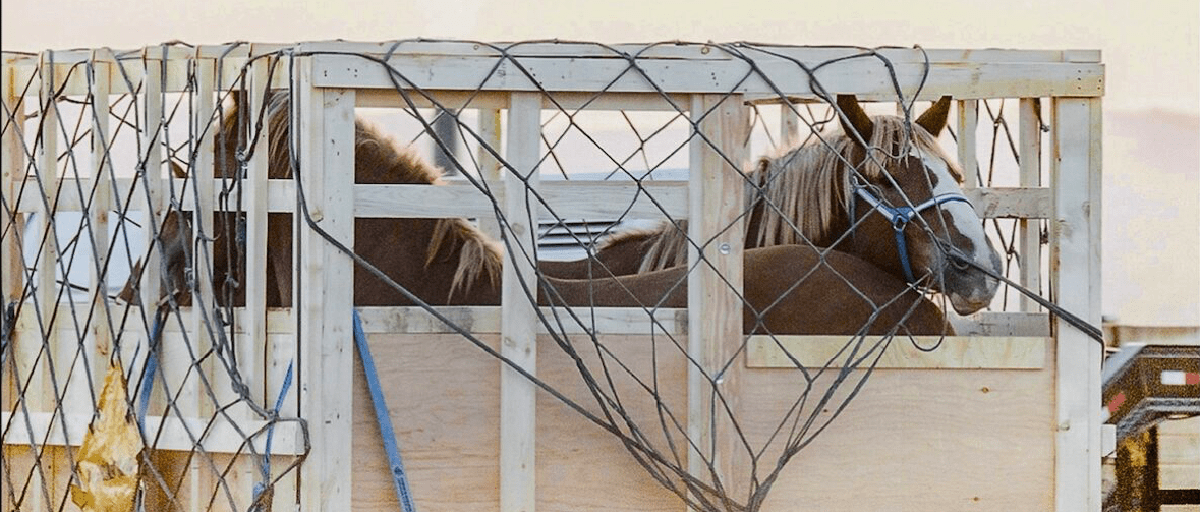
The Honourable Lawrence MacAulay, the current Minister of Agriculture and Agri-Food, has the power to end the inhumane export of horses by air for slaughter by enacting a regulatory amendment.
Help spread the word by sharing this email campaign with friends and family! You can also support the cause by donating—your contribution will help fund advertising efforts to raise awareness and push for change. Every action makes a difference!